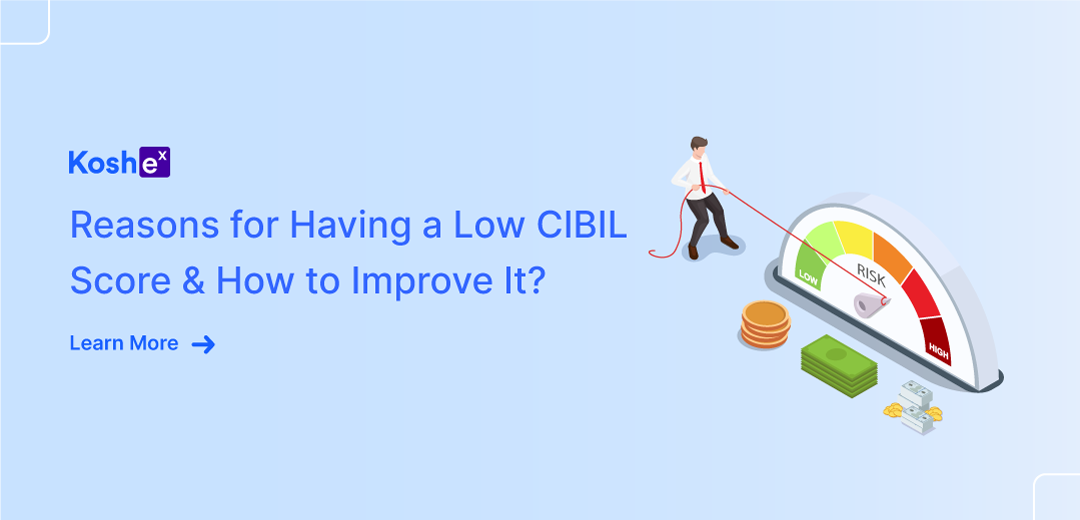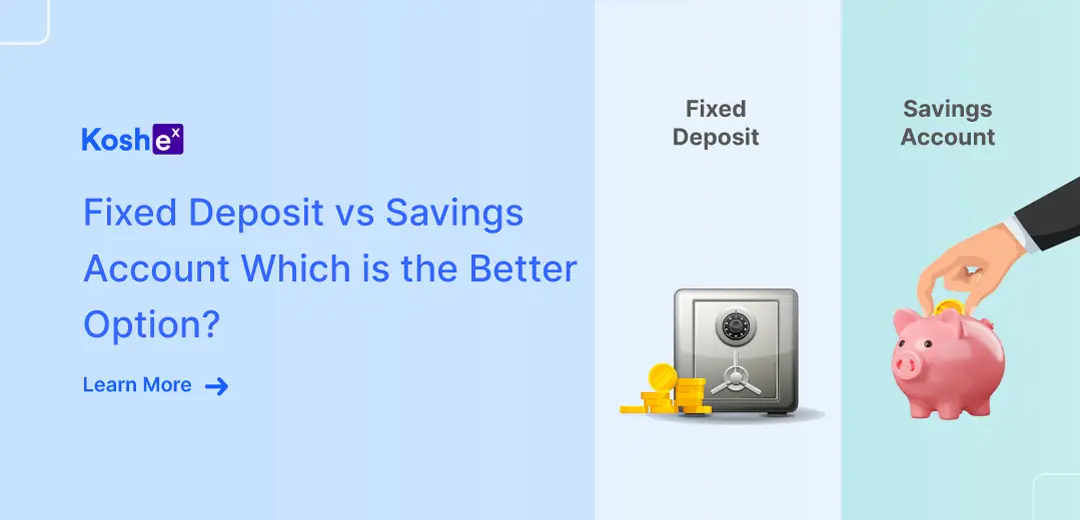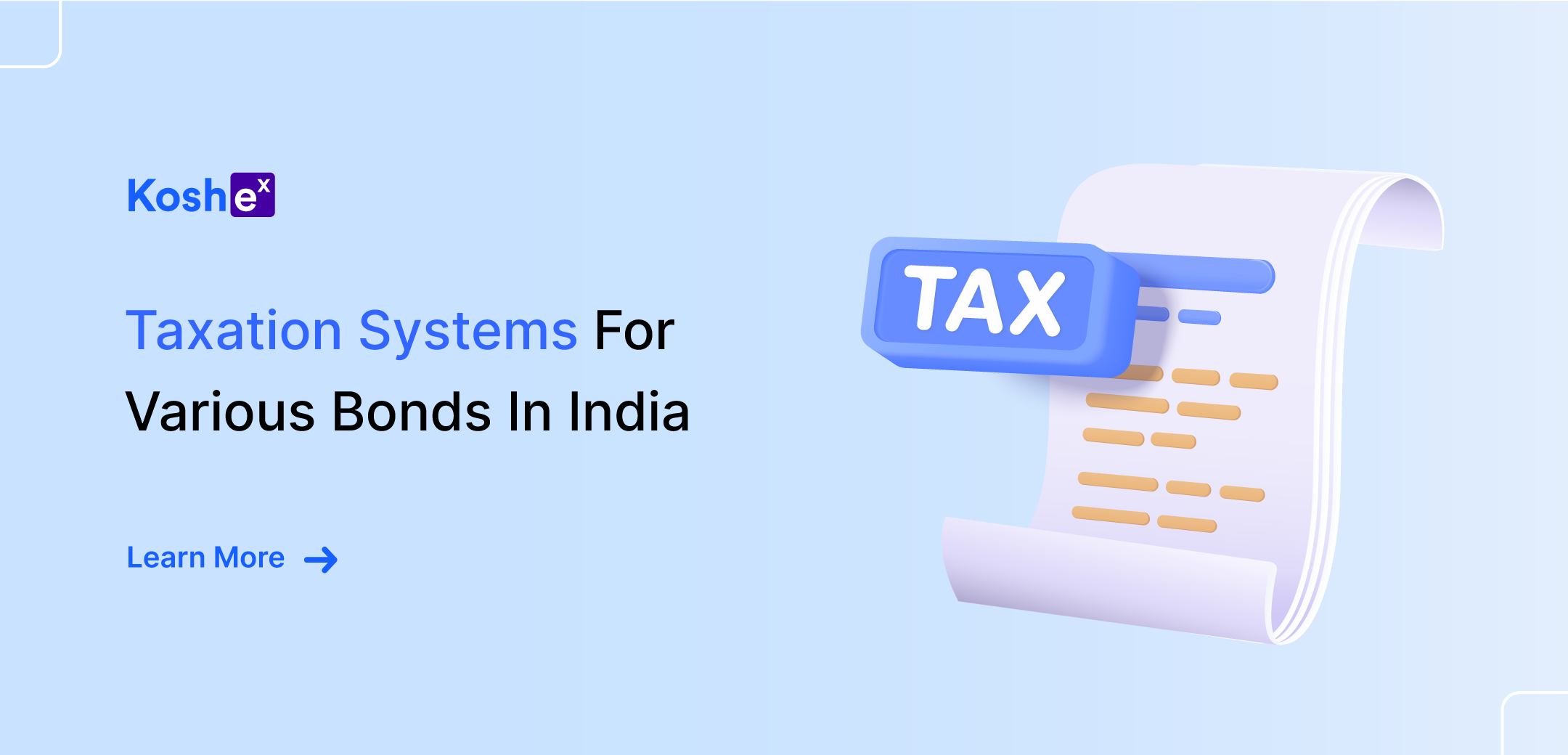Credit plays an important role in shaping your financial trajectory. The Credit Information Bureau (India) Limited, commonly known as CIBIL, plays an important role in assigning you credit scores based on your credit history. The credit score is the scorecard of your credit behavior. Let’s understand the reasons for having a low CIBIL score and provide good strategies to improve it. But before that, we need to understand the CIBIL score in detail. Explore more with Koshex!
What is the CIBIL Score?
Before understanding the factors that contribute to a low CIBIL score, it is important to understand what this score signifies. The CIBIL score is a 3-digit number derived from your credit history. It tracks your entire credit performance and includes details about loans and credit cards as well as any other credit facilities.
In simpler terms, it is a numeric representation of your creditworthiness and ranges from 300 to 900. A higher credit score indicates better creditworthiness. Lenders use this score as a quantitative measure to assess the risk of lending money to you. A higher CIBIL score reflects responsible credit behavior on your part, while a lower score suggests a higher credit risk for banks and financial institutions. This can directly impact their lending decisions.
Top Reasons for Low CIBIL Score
Here are some of the most common reasons for a low CIBIL score:
1) Late Payments
One of the primary and most significant contributors to a low CIBIL score is the mistake of making late payments on your EMIs. Timely payments are essential for you if you want to maintain a healthy credit score. Each EMI skipped will dent your credit score. Even if you end up bouncing 10 EMIs, you will notice a significant difference in your credit score.
2) High Credit Utilization Ratio
The credit utilization ratio is the proportion of credit used in relation to the total available credit. This is highly prominent in credit cards, where you are assigned a total limit out of which you can make expenses and repay them next month. If you have a high credit utilization ratio, it can negatively impact your CIBIL score. It depicts that you are highly dependent on credit facilities to meet your needs. This signals potential financial strain.
For instance, suppose you have a credit card limit of Rs. 1 lakh, and each month, you end up utilizing Rs. 70,000 to Rs. 90,000 of your limit. This shows that you are highly dependent on your credit card to meet your needs and can thus harm your CIBIL score. By keeping your utilization ratio below 30% (Rs. 30,000 in this case), you can use your credit card safely and increase your CIBIL score with timely repayments.
Also read: Is It Bad To Have Too Many Credit Cards?
3) Multiple Loan Applications
This is also known as a hard inquiry. Whenever a lender requests that you check your credit report to assess your loan eligibility, it gets recorded on your credit report. If you continuously apply for multiple loans and credit cards in a short period of time, it can be seen as a red flag by lenders. This indicates financial instability and can negatively impact your CIBIL score.
Also Read: All About Credit Score
4) Settlements and Defaults
Settlement refers to negotiating with the bank to close the loan at an amount lower than the actual amount outstanding. This is usually done when the borrowers do not have adequate funds to repay and want to close off their loans. Settling a debt for less than the full amount or declaring bankruptcy severely affects the CIBIL score. These events stay on the credit report for an extended period and can be detrimental to one’s creditworthiness. Further, if you do not pay at all, it gets marked as a willful default on your credit report. You may have a hard time getting any lending facilities if your credit report reflects a willful default.
5) Limited Credit History
Individuals with a limited credit history may find themselves with a lower credit score. Lenders prefer borrowers with a longer credit history, as it provides a more comprehensive view of their financial conduct. Further, it also depicts sound financial management, as while the borrower availed of multiple loans, he also made timely repayments of all of them.
How To Improve Your CIBIL Score?
One cannot undermine the significance of a good credit score. If your CIBIL score is not up to the mark, here’s how you can improve it with a few simple strategies:
- Timely Payments: The most effective way to improve your CIBIL score is to make timely payments. This can be your loan EMIs or even credit card bills. Timely and consistent payments demonstrate financial responsibility.
- Reduce Credit Card Usage: Lowering credit card usage can significantly improve the credit utilization ratio. Another trick is to go for a credit card with a higher credit limit. You should aim to keep the ratio below 30% to positively impact your CIBIL score.
- Avoid Multiple Applications: You should limit the number of your loan and credit card applications. This will help negate the perception of financial instability. Each loan and credit card application leaves an inquiry on the credit report that creates a negative perception.
- Maintain a Mix of Credit: A diverse credit portfolio can positively impact the credit score. A mix of credit cards and different types of loans, i.e., secured and unsecured, reflect positive credit behavior. It shows your ability to manage various financial responsibilities.
- Check and Correct Credit Report Errors: You should regularly review your credit report for any inaccuracies. If you find any errors, promptly dispute and correct them with the credit bureau.
Also Read: Using Credit Cards Responsibly What to Know
Summing Up
A low CIBIL score can hinder potential financial opportunities and limit access to credit. Understanding the factors contributing to a low CIBIL score is the first step toward responsible credit behavior.
You can make sound financial and credit decisions since you are aware of the factors that can potentially harm your CIBIL score and the ways to improve it. But remember, at the bedrock of all this lies your financial standing. You can significantly improve your financial health through consistent savings and investments.
Koshex has been helping investors improve their financial standing significantly by providing a gamut of assets to invest in.
With over 5000+ mutual funds, there is a fund for each investor investing through it. Further, you can also diversify your portfolio by investing in digital gold or smart deposits. If you wish to play safe, you can go for fixed deposits. Sign up now with Koshex!
Frequently Asked Questions
Q: How often should I check my CIBIL score?
A: It is advisable to check your CIBIL score at least once a year, if not more. However, if you are planning to make a significant financial decision, such as applying for a loan, checking it more frequently is recommended.
Q: Can settling a debt improve my CIBIL score?
A: If you go for settlement, it gets recorded on your credit report accordingly. While this may resolve your immediate financial obligation, it may create a negative perception in the minds of potential lenders.
Q: Is there a quick fix to improve a CIBIL score?
A: Improving a CIBIL score is a gradual process that requires you to demonstrate consistent, financially responsible behavior. There is no quick fix, but by making timely payments, reducing debts, having a sound credit utilization ratio, and managing credit responsibly, you can see positive changes over time.









Leave a Comment